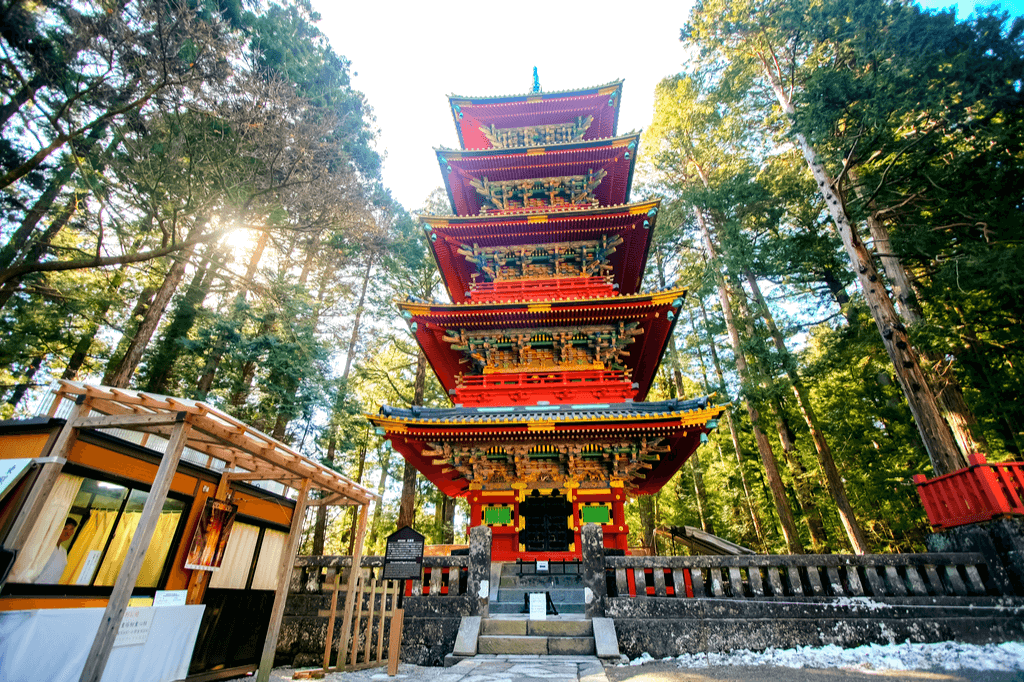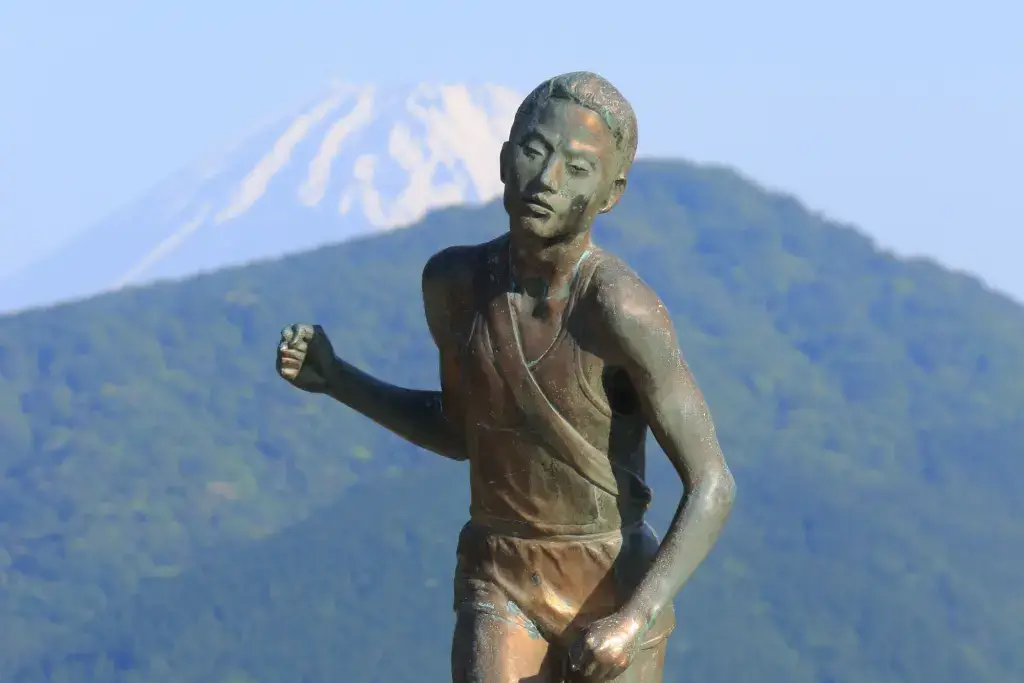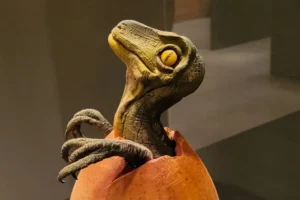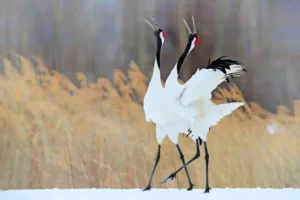The natural wonder is present throughout Tochigi Prefecture. This makes it a favorite destination for many outdoor enthusiasts and worldwide tourists. Significantly, the mountainous northern region of Tochigi is famous in Japan. Visitors can find the best outdoor hot springs, ski resorts, historical sites, local sake, and tasty delicacies.
Moreover, numerous Buddhist temples and ancient shrines bring unforgettable feelings to be domestic and foreign tourists. The majestic and breathtaking scenery of Tochigi’s famous natural wonders will easily impress residents and visitors alike.
Table of Contents
ToggleMount Nasu
Mount Nasu is in the northeastern area of Nikko National Park. It’s one of the 100 well-known mountains in Japan. Moreover, Mount Nasu is one of five volcanoes in the area. Hikers on Mount Nasu will quickly recognize the charming scenery thanks to the misty fog and smoke as they climb higher. This natural wonder of Tochigi possesses an outstanding variety of hiking trails. They wind through a beautiful seasonal blooming of fall colors.
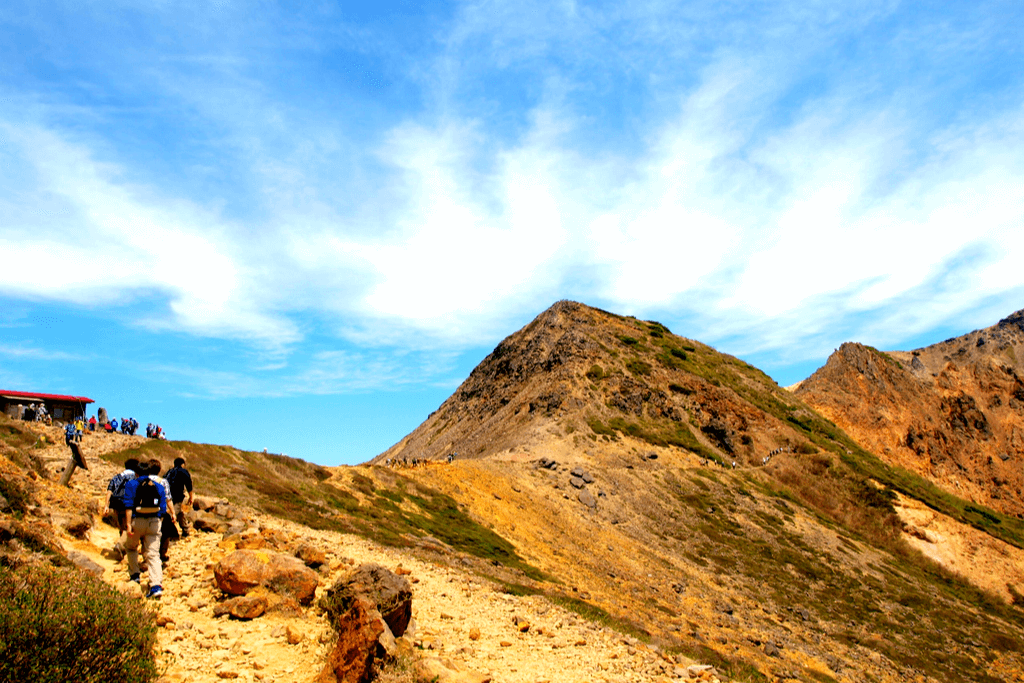
Furthermore, exploring Mount Nasu is also enjoyable because of the best hot spring, accessible via traversing a volcano and a swamp. Mount Nasu is so unique that snow is still present in May despite its elevation of less than 2000 m.
Lake Chuzenji
This natural lake formed when Mount Nantai erupted and obstructed the river about twenty centuries ago. Many Japanese people call Lake Chuzenji “the Sea of Happiness,” one of the most popular natural wonder destinations in Tochigi Prefecture.
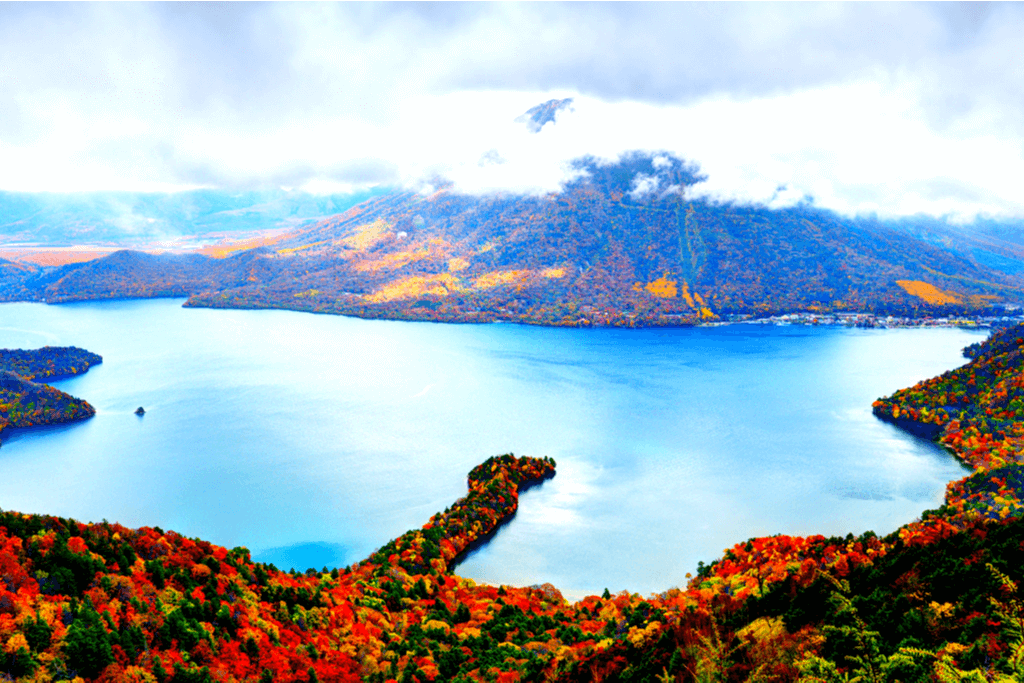
Lake Chuzenji is in the western part of Nikko. Thanks to the stunning landscapes and cool fresh air, this place has become a favorite spot for many people when the boiling summer comes to urban areas. In the autumn, people also go there to admire the fantastic fall leaves. Moreover, Chuzenji Temple is located along the eastern shore of Lake Chuzenji. This place will also lead you to many beautiful views and magnificent Buddhist art.
Kegon Falls
Although Nikko is home to several waterfalls (around 48 falls), Kegon Falls, which lies in the Nikko National Parks, is the most well-known. This natural wonder is also one of Japan’s top three most exquisite waterfalls. Most visitors here recognize that Kegon Falls is both stunning and vigorous. Twelve minor waterfalls are behind, and a spectacular rainfall from lake Chuzenji is around 97 meters high.
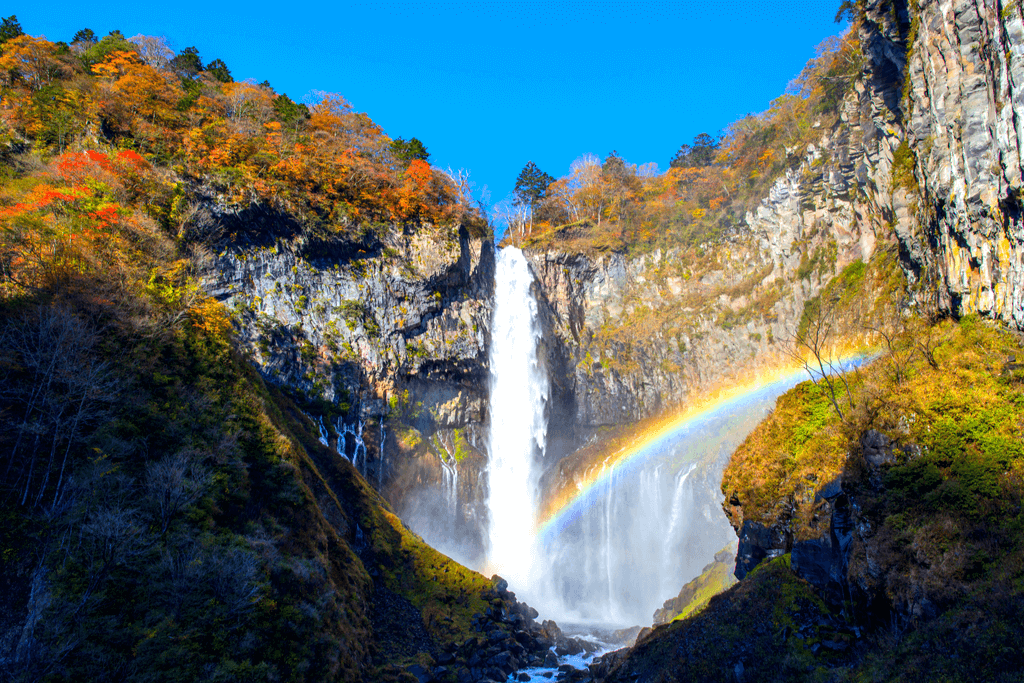
Every season brings Kegon falls a breathtaking view. Summer is dark green, while fall brings out crimson and yellow leaves. Thus, this waterfall offers tourists a lot of autumn viewing spots in October annually. In winter, water freezes as it falls, forming stunning ice patterns resembling art’s unique creations.
Looking to enjoy local treats from Japan? Check out Sakuraco! Sakuraco sends traditional Japanese snacks, teas, sweets, and kitchenware so you can taste Japanese culture in the comfort of your home!

Unryu Keikoku Falls
In addition to the famous Kegon Falls in the Nikko National Park, an exciting place that only wakes up its true beauty in the cold, snowy winter is the Unryu Keikoku Falls, also known as “Cloud Dragon Valley.” This waterfall flows between the high peaks of Mount Nyoho and Mount Akanagisan.
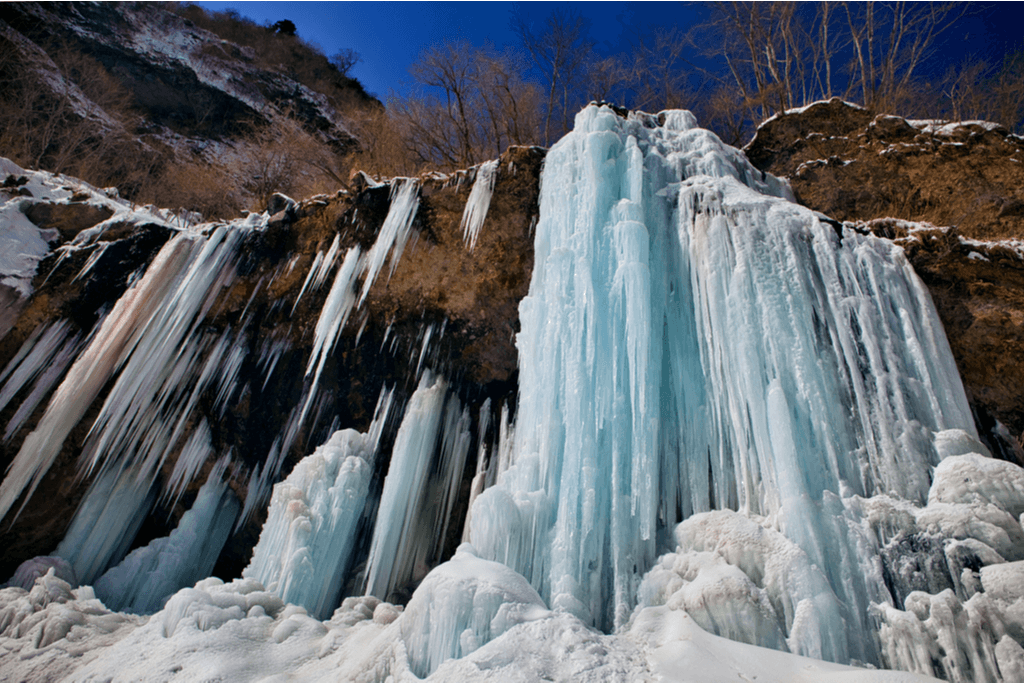
When the weather is warm, Unryu Keikoku Falls typically appear to be falling from the surrounding mountaintops as they flow down the steep valley walls. However, these moderate waterfalls throughout the winter transform into cascades of frozen water falling over one another. They produce countless hanging ice daggers and enormous columns thick enough to do ice climbing.
The frozen form and gorgeousness of Unryu Keikoku’s main fall and many other small waterfalls make it a true winter wonderland in the Nikko region. Unryu Keikoku has become a popular place for ice valley hiking in the winter for those who love the cold and adventure.
Kinugawa Onsen
In the Tochigi Prefecture, Kinugawa Onsen is a well-known hot spring tourist town along the Kinugawa river. Along with its natural hot springs, the city is known for its enormous ryokan (Japanese hotels) that line the riverfront. Kinugawa Onsen area has numerous attractions, such as Tobu World Square and Nikko Edomura entertainment parks.
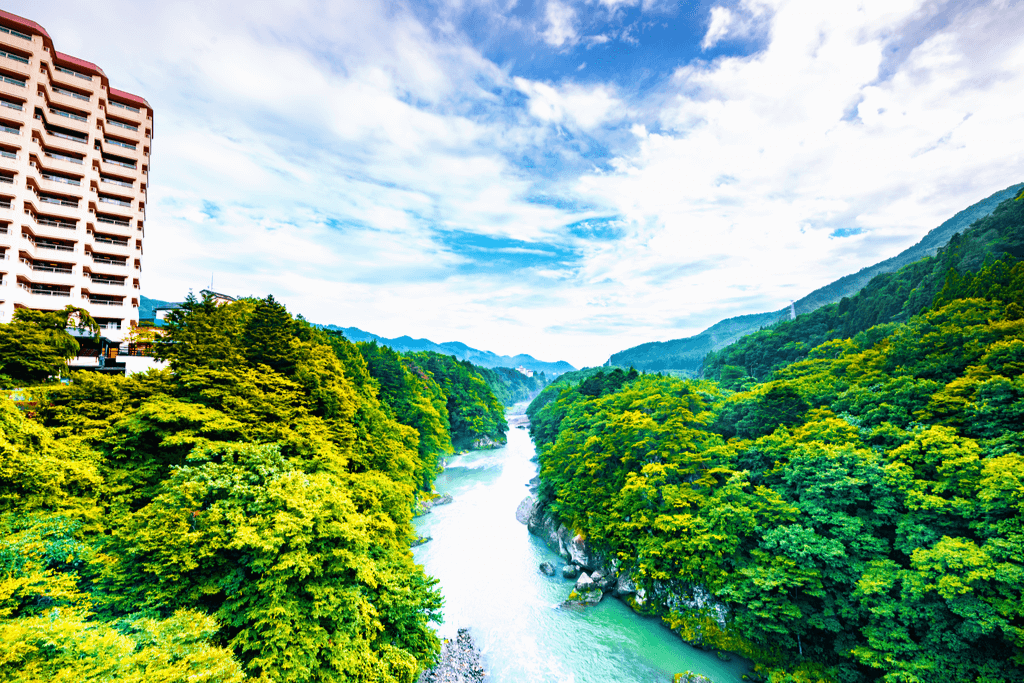
Monks found the ancient hot springs in the Kinugawa Onsen over 300 years ago. They were exclusively accessible to daimyo warriors and monks who were traveling to Nikko at that time. These days, Kinugawa Onsen has welcomed many tourists since its public opening in the late 19th century. Furthermore, they have grown into a fantastic spa resort that offers visitors smooth skin treatment and helps them to alleviate tiredness.
Ashikaga Flower Park
According to most Japanese people, one of the greatest sites to admire Fuji flowers (Wistera) is Ashikaga Flower Park. This park has many long and dreamlike Wisteria Trellis paths. In addition to the Fuji flowers, the park is also home to a variety of pretty flowers and other vibrant botanical species.
This area has many magnificent sceneries, including a Fuji tree that is 100 years old. Additionally, this natural park has many seasonal attractions, like the Spring Flower Festival, the Bejewelled Flower Garden, and many more. These events occur at different periods throughout the year and showcase unique seasonal flowers.
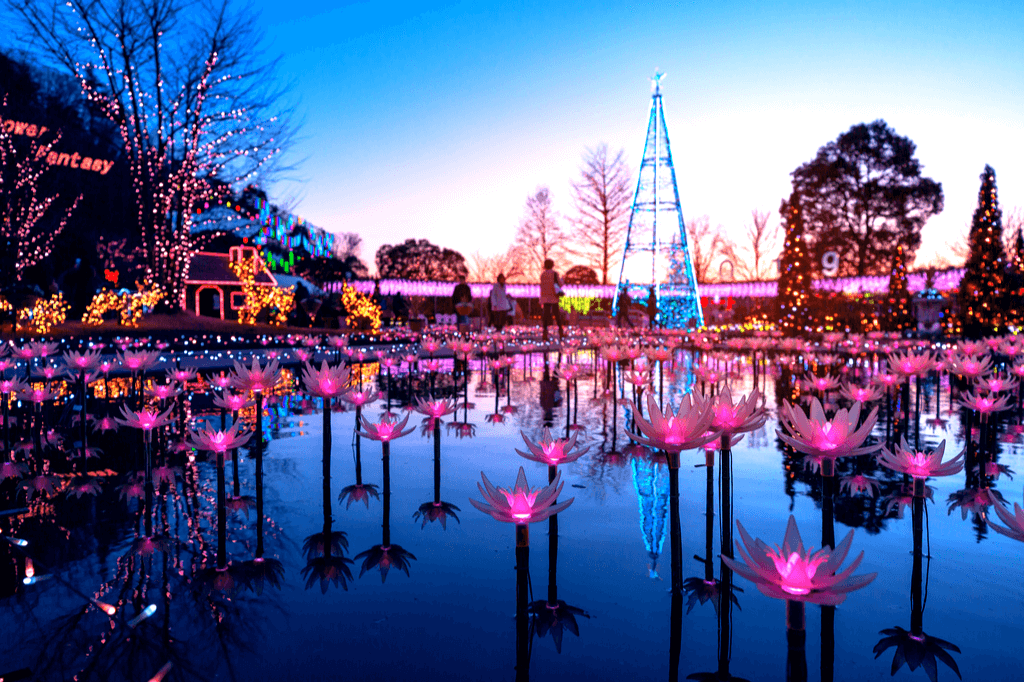
One of the year’s most notable events in Ashikaga Flower Park is “The Tale of Fuji no Hana.” This event is always considered the largest wisteria flower viewing festival in Japan, lasting about one month and taking place from mid-April to mid-May every year. More than 350 wisterias will be displayed and illuminated at night during the festival.
We hope you’ve captured some famous and majestic places in Tochigi Prefecture. These natural wonders will genuinely delight your eyes if you can visit them and enjoy the magnificent natural views. Let us know in the comments below if you’re interested in seeing any of these natural wonders throughout Tochigi.

